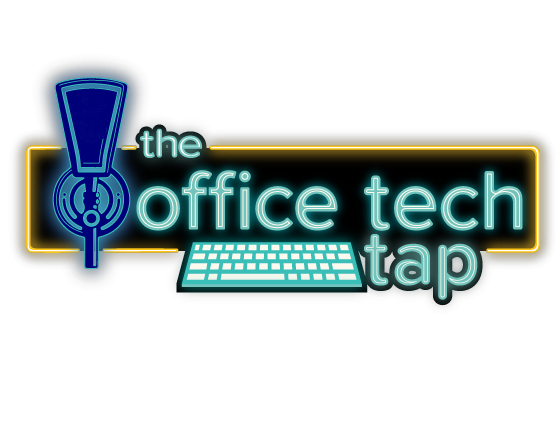Acquisitions, Expansions, And The Importance Of Resilience

May 11, 2023
Industry
Valsoft Acquires Nexera
Acquisition to Strengthen Valsoft’s Printing Vertical

Montreal-based Valsoft Corporation, a company focused on acquiring and developing vertical market software businesses, has announced its acquisition of Nexera. For over 25 years, Nexera has specialized in collecting and standardizing critical business data to provide industry-wide benchmarks for service and financial performance in the copier/printer sector. The company also offers services such as Virtual CFO, strategic planning, IT consulting, and management with cloud-based and on-premises designs.
Weston McArtor, Nexera’s founder, said, “My goal was to find a strong partner who could continue our legacy of having a meaningful connection with our customers as well as someone that had an existing global presence in the space.”
With this acquisition, Nexera becomes the third company in the Printing Vertical to join Aspire Software, Valsoft’s operating group, along with MPS Monitor and Euroform. The partnership is expected to strengthen Nexera’s presence in the North American market, while also leveraging Aspire’s global presence for expansion.
– Greg Walters, Head Writer
Industry
Sharp Push into Production Print
Big Iron a Big Bet?

The Sharp National Dealer Meeting held on April 18-20, 2023 demonstrated the strength of the partnership between Sharp and Fujifilm, as noted by an article from The Cannata Report. The collaboration aims to expand Sharp’s production print distribution by private labeling Fujifilm’s products. This partnership benefits both companies and allows Sharp to develop an internal organization capable of competing with other manufacturers in the production print space.
Frank G. Cannata writes, “Sharp dealers that are already selling Xerox production print will begin to shift their purchases to Sharp within 12 months from launch.” As the product line is broad and includes entry-level options, Sharp dealers are expected to focus on these products while building an organization capable of competing in production print.
The relationship between Sharp and Fujifilm is predicted to grow stronger as Sharp sells Fujifilm’s production print products, strengthening Fujifilm’s position against Xerox in their ongoing battle. As Sharp nurtures its dealers entering the production print space, it is expected to make inroads against manufacturers who do not want their dealers to play in the upper reaches of production.
Cannata emphasizes the potential success of Sharp’s endeavors in the production print space, stating, “This may well be my last hurrah, but I am not going anywhere until I write an article in our production print issue that tells the story of just how successful all the Japanese manufacturers are selling their production print products through dealers.”
– Greg Walters, Head Writer
Industry
Xerox Reveals How the Company Has Survived for 100 Years
Sign It All Boils Down to Three Strategies

Xerox, founded in 1906, has a long history of withstanding economic fluctuations and downturns. When Steve Bandrowczak stepped into the CEO role in August, he leaned on his two decades of experience as a technology leader to implement new digital strategies internally. However, as economic forecasts began to sour in early 2023, and experts predict a likely recession this year, Bandrowczak started to rely more on Xerox’s company culture to execute his goals.
Bandrowczak shared three key strategies for leaders to still bring innovation into their organizations’ internal workflows and consumer-facing products while preparing for potential economic uncertainty.
- Build a culture of resilience by projecting calm and treating challenges as opportunities
- Think like a consumer, creating consumer-like experiences in enterprise solutions
- Guide your team empathetically through changes in tech
First, Bandrowczak emphasized the importance of building a culture of resilience. Leaders should project calm in the face of panic and maintain a positive mindset when dealing with crises. Xerox’s long-standing history and culture of resilience have helped the company weather numerous economic storms, adapting its strategies to suit changing circumstances.
Second, Bandrowczak believes that all enterprise solutions should be more “consumer-like” to meet clients’ expectations. As technology advances and becomes more accessible, consumers develop higher expectations for the products and services they use. By leveraging technology both internally and across customer offerings, businesses can create seamless and innovative experiences for their clients. Xerox has utilized robotics, artificial intelligence, and augmented reality to improve its customer experience and bridge the gap between its legacy systems and newer ones.
Finally, Bandrowczak highlighted the importance of guiding teams empathetically through changes in technology. He pointed out that digital transformation is not a one-time event but a continuous process. Leaders must be intentional when introducing new systems and strategies, addressing any fear or worry employees may have about the technology. By demonstrating how employees are already using similar technology in their daily lives, leaders can help to alleviate concerns and create a more accepting environment for technological innovation.
Bandrowczak’s strategies for innovation during uncertain economic times emphasize the need for strong company culture, consumer-centric thinking, and empathetic leadership when introducing new technology. These approaches can help businesses navigate economic challenges and continue to grow and evolve.
– Greg Walters, Head Writer
Work
PLANET AI Releases Enhancements to Intelligent Document Processing Platform
New Features to Automate Document Workflows More Efficiently

PLANET AI, a leading provider of cognitive systems for text and image recognition, has released IIDA 5.1, an update to its flagship Intelligent Document Processing (IDP) platform. IDA is known for its patented and award-winning technology that automates document capture, classification, and extraction using its proprietary OCR technology. This allows IDA to outperform other IDP vendors in difficult recognition scenarios, including handwritten text.
IDA 5.1 introduces new features to enhance the software’s functionality and performance. One key addition is Document Split, which allows for the automatic splitting of multi-page documents into separate, smaller files. This feature saves a significant amount of manual work, streamlining the document processing workflow.
The updated platform also includes significant training improvements, making it easier for users to train extraction models within minutes. This reduces the time required to set up the software for use. Additionally, IDA 5.1 features enhanced algorithms that enable it to detect, classify, and process a broader range of document types, such as forms, contracts, and invoices.
Jesper Kleinjohann, COO of PLANET AI, stated that IDA 5.1 is a major step forward in the evolution of its document processing software. He emphasized that customers can now automate their document workflows more effectively, thanks to the platform’s advanced capabilities for recognizing and processing both handwritten and machine-printed documents. With the addition of Document Split and significant training improvements, IDA 5.1 sets a new standard for intelligent document processing software.
IDA 5.1 offers a powerful and user-friendly document processing solution for businesses of all sizes. Its unparalleled accuracy in recognizing handwriting and machine-printed text, along with its document classification and content extraction capabilities, make it an essential tool for businesses aiming to optimize their document processing workflows.
– Greg Walters, Head Writer
Internet Relay Chat – News to Go
- IBM halts hiring for 7,800 jobs that could be replaced by AI
- Xerox CEO Wants Leaders to Be ‘Consumer-Like’ in Economic Uncertainty
- CompTIA Releases Cybersecurity Whitepaper
- End-of-the-road for WFH?



